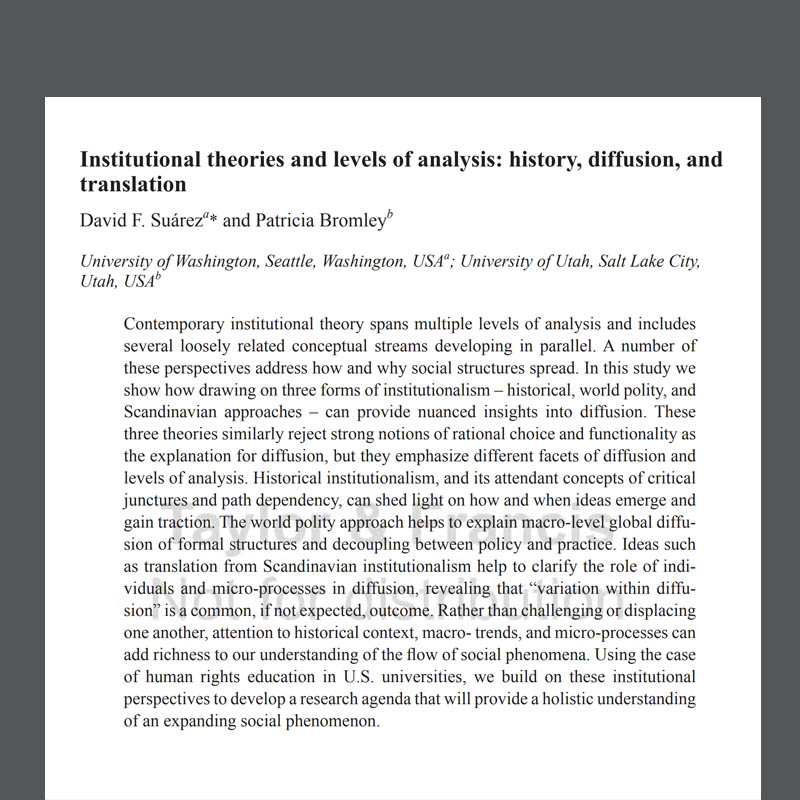
Institutional Theories and Levels of Analysis: History, Diffusion, and Translation.
Contemporary institutional theory spans multiple levels of analysis and includes several loosely related conceptual streams developing in parallel. A number of these perspectives address how and why social structures spread. In this study we show how drawing on three forms of institutionalism – historical, world polity, and Scandinavian approaches – can provide nuanced insights into diffusion. These three theories similarly reject strong notions of rational choice and functionality as the explanation for diffusion, but they emphasize different facets of diffusion and levels of analysis. Historical institutionalism, and its attendant concepts of critical junctures and path dependency, can shed light on how and when ideas emerge and gain traction. The world polity approach helps to explain macro-level global diffusion of formal structures and decoupling between policy and practice. Ideas such as translation from Scandinavian institutionalism help to clarify the role of individuals and micro-processes in diffusion, revealing that “variation within diffusion” is a common, if not expected, outcome. Rather than challenging or displacing one another, attention to historical context, macro- trends, and micro-processes can add richness to our understanding of the flow of social phenomena. Using the case of human rights education in U.S. universities, we build on these institutional perspectives to develop a research agenda that will provide a holistic understanding of an expanding social phenomenon.


Leave a Reply